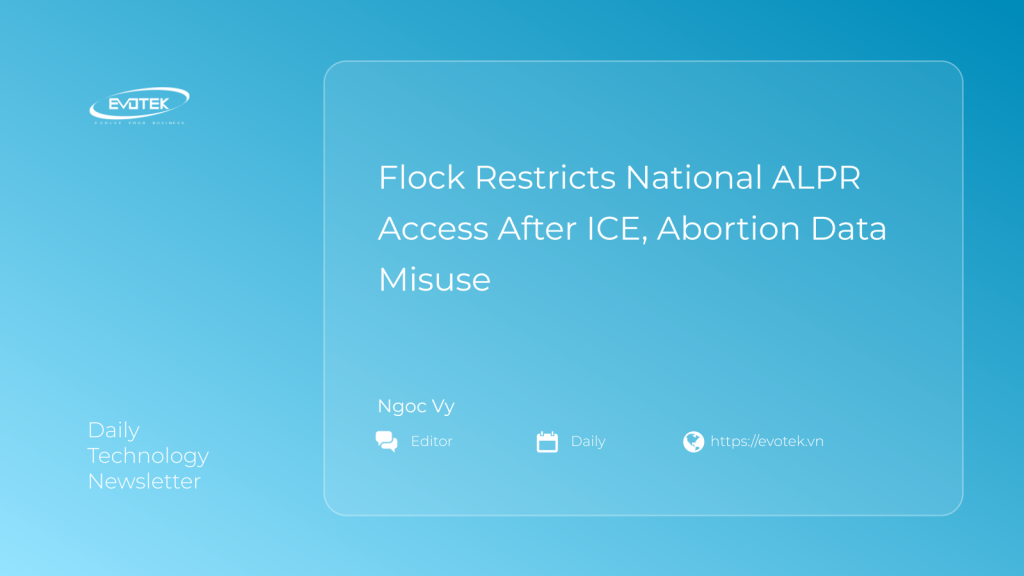Following revelations of misuse, Flock, a leading automatic license plate reader (ALPR) company, has curtailed national data access for agencies in California, Illinois, and Virginia. This decision, prompted by investigative reporting from 404 Media and recent state legislation, addresses concerns over unauthorized searches for immigration enforcement and abortion-related information.
Flock’s ALPR system, utilized by numerous communities nationwide, previously allowed agencies to participate in a national lookup database. This system enabled cross-state data sharing, granting access to data collected in other jurisdictions, provided they reciprocated by sharing their own data. However, this practice has come under scrutiny for potentially violating state laws that restrict the sharing of ALPR data across state lines or its use for immigration or healthcare-related purposes.
The policy change was influenced by a 404 Media investigation which exposed instances of local police departments conducting nationwide lookups on behalf of Immigration and Customs Enforcement (ICE). Furthermore, a Texas officer misused the system to search for a woman who had self-administered an abortion. These revelations, coupled with the enactment of new legislation in Virginia, spurred Flock to limit national data access.
The controversy surrounding Flock’s data sharing practices has also garnered attention from local and state media outlets, prompting investigations into how agencies are utilizing Flock cameras within their communities. In Illinois, the Secretary of State is investigating potential legal violations by police departments who may have shared data with external agencies for immigration or abortion-related reasons. Some police departments have even terminated data access after discovering its use for immigration enforcement.
This move by Flock represents a significant step towards addressing privacy concerns surrounding ALPR technology and ensuring compliance with state laws. The situation continues to evolve as investigations unfold and debates surrounding data privacy persist.

 日本語
日本語 한국어
한국어 Tiếng Việt
Tiếng Việt 简体中文
简体中文